Slicing Into the History of This Southern Classic
Pecan pie, with its rich, nutty filling and buttery crust, is an iconic dessert in American culture, particularly in the South. A staple of Thanksgiving feasts and holiday gatherings, it holds a special place in the hearts—and kitchens—of many. Yet, despite its long-standing association with American cuisine, pecan pie has a surprisingly complex history that intertwines with regional traditions, agricultural developments, and even cultural symbolism.
In this blog, we’ll explore the fascinating history of pecan pie, tracing its origins, delving into its regional roots, uncovering its symbolic significance, and surveying the classic and regional variations that have emerged over time. We’ll also look at some lesser-known facts that make this dessert truly special.
 The Origins of the Pecan
The Origins of the Pecan
Before delving into the history of the pie, it’s important to start with its star ingredient: the pecan. Pecans, native to North America, are deeply rooted in the land's history, particularly in the fertile Mississippi River Valley. Long before European settlers arrived, Indigenous peoples, like the Algonquin, valued wild pecans for their rich, buttery flavor and high nutritional content. An essential food source, pecans provided sustenance during the colder months and were often traded extensively between tribes. In fact, the name “pecan” comes from the Algonquin term "pacane" which translates to "a nut that requires a stone to crack.”
Pecans weren’t just a practical source of nourishment—they also held cultural significance for many Native American tribes, symbolizing abundance and resourcefulness. Their discovery by European colonists, particularly the Spanish and French settlers, quickly led to pecan cultivation in the southeastern United States. Pecans, with their robust, adaptable nature, flourished in this region’s warm climate, and settlers began integrating them into European-style baking and cooking. Over time, pecans became a staple in Southern kitchens, symbolizing the region's rich natural resources and the culinary traditions that developed around them.
Dive deeper into the origins, history, and nutritional value of pecans in our blog: The North American Pecan
 The First Documented Pecan Pie Recipe
The First Documented Pecan Pie Recipe
The first known instance of a recipe resembling pecan pie appeared in the late 19th century, but like many classic American desserts, its precise origins remain somewhat murky. Food historians trace the early roots of pecan pie to a pecan custard pie recipe published in a Texas cookbook during the 1870s. However, this version was a much simpler dessert, far less sweet than the modern pecan pie we enjoy today, as it did not yet include the defining ingredient of corn syrup. Instead, it relied on basic sweeteners like sugar and molasses, creating a more subtly flavored treat.
Pecan pie, as we know it, truly began to take shape in the early 20th century. This transformation was largely due to the growing availability of refined sugar and corn syrup, which made sweeter, more indulgent desserts accessible to the average home cook. In particular, Karo syrup—a brand of corn syrup introduced in the early 1900s—played a pivotal role in the evolution of pecan pie. The company actively promoted the dessert by publishing a recipe for pecan pie on its bottle labels starting in the 1930s. This recipe showcased the thick, rich filling created by corn syrup, which became the standard for the modern version of the pie. The convenience of using Karo syrup and the brand’s aggressive marketing efforts helped pecan pie become a nationwide sensation.
What had once been a regional treat with modest sweetness quickly turned into the decadent, sticky-sweet dessert that is now a staple at holiday tables across America. The Karo syrup recipe's success not only cemented pecan pie’s place in Southern cuisine, but also brought it into homes across the country, making it a symbol of comfort, hospitality, and tradition.
Regional Origins & Symbology
While the exact origins of pecan pie may be debated, there’s no question that the dish is deeply embedded in Southern culture. Much like other iconic Southern staples such as sweet tea, barbecue, and cornbread, pecan pie carries more than just flavor—it holds symbolic weight. The dessert represents hospitality, family traditions, and the comforting warmth of home, making it a beloved feature at family gatherings, Sunday suppers, and holiday celebrations. Over time, pecan pie has transcended its role as a simple dessert to become a cultural icon, a reminder of Southern identity and the importance of community.
As one of the country’s largest pecan producers, this connection is especially strong in Texas. It’s no surprise then, that the state has fully embraced pecan pie as part of its identity. In 1919, Texas declared the pecan tree its official state tree, recognizing the nut’s importance to both its economy and heritage. By 2013, Texas took this appreciation one step further by naming pecan pie the official state pie. This act symbolized the state’s pride—not only in the pecan as a natural resource—but also in the desert’s role as a reflection of the South.
Though pecan pie is quintessentially Southern, its appeal has spread far beyond the Mason-Dixon line. This is due, in large part, to the successful marketing efforts of Karo syrup, which made the dessert a household name across the country. Today, pecan pie remains most popular in the southern and central U.S., where it continues to be a staple at holiday meals and celebrations. However, thanks to its delicious simplicity and association with family traditions, pecan pie has become a beloved part of Thanksgiving dinners nationwide, regardless of region. Whether it’s enjoyed in Texas, New England, or the Midwest, pecan pie’s roots in Southern culture remain undeniable, making it a dessert that carries with it a sense of tradition, warmth, and community across the country.
 Classic & Regional Variations
Classic & Regional Variations
While the classic version of pecan pie consists of a buttery, flaky crust filled with a sweet, gooey mixture of pecans, sugar, and corn syrup, there are numerous regional variations that have developed over the years. These variations include:
- Classic Pecan Pie: The traditional recipe features pecans mixed with eggs, sugar (typically brown), and corn syrup. Karo syrup became the go-to choice for the sweetener, giving the pie its signature custard-like texture. A dash of vanilla extract and a sprinkle of salt enhance the nutty flavor. Some bakers even add bourbon or whiskey for an extra Southern flair.
- Chocolate Pecan Pie: One of the most popular variations is chocolate pecan pie, which incorporates melted chocolate or cocoa powder into the filling. This decadent twist is especially popular in areas like New Orleans and throughout Louisiana, where it’s often served with a dollop of whipped cream.
- Bourbon Pecan Pie: Bourbon pecan pie adds a splash of bourbon whiskey to the filling, lending a depth of flavor that complements the sweetness of the syrup and the richness of the nuts. This version is often associated with Kentucky, a state known for its bourbon distilleries, but it’s also enjoyed throughout the South.
- Texas Pecan Pie: In Texas, where pecan pie reigns supreme, locals sometimes add jalapeños or hot sauce to their pies for a sweet-and-spicy twist. Other Texas versions use a graham cracker crust instead of the traditional pastry crust.
- Maple Pecan Pie: In regions like New England, where maple syrup is more common than corn syrup, maple pecan pie has become a beloved variation. The use of maple syrup adds a distinct earthy sweetness to the pie, making it a popular choice during the fall season.
- Honey Pecan Pie: A more recent variation replaces corn syrup with honey, resulting in a pie that is slightly less sweet but equally delicious. Honey pecan pie has gained popularity among bakers looking for a more natural sweetener, and it pairs beautifully with the nutty richness of the pecans.
- Gluten-Free & Vegan Pecan Pie: Modern dietary preferences have also led to the development of gluten-free and vegan versions of pecan pie. Gluten-free versions typically use an almond flour or rice flour crust, while vegan pecan pies forgo eggs and dairy, instead relying on plant-based substitutes like flaxseed and coconut oil.
Pecan Pie Beyond the U.S.
Although pecan pie is distinctly American, its reputation has extended well beyond U.S. borders. In Canada, for instance, the pie is embraced with the same enthusiasm as in the States, gracing tables during holidays like Thanksgiving and Christmas. Moreover, pecan pie has made its way onto dessert menus in international restaurants that feature Southern-inspired cuisine, introducing diners around the globe to a taste of the American South. Restaurants in places like Europe and Asia have recognized the allure of pecan pie, incorporating it into their seasonal offerings to provide guests and expatriates alike with an authentic Southern experience.
While pecan pie itself may not have achieved widespread international fame, the global availability of pecans ensures that this beloved nut is enjoyed in numerous forms around the world. From salads and sauces to desserts and snacks, pecans have become a sought-after ingredient in various culinary traditions. As more chefs and home cooks experiment with pecans in their recipes, the nut continues to garner appreciation and recognition, bridging cultural divides and celebrating the rich heritage of the American South.
 Additional Fun Facts About Pecan Pie
Additional Fun Facts About Pecan Pie
Pecan pie isn’t just a delicious dessert with deep Southern roots—it’s also a pie with a surprising array of fun facts and cultural connections. From breaking world records to popping up in popular films and offering unexpected health benefits, this classic pie has more to its story than meets the eye. Here are a few interesting tidbits that showcase how pecan pie continues to make its mark beyond the dining table.
- World Records: In 2012, the world’s largest pecan pie was baked in Texas. It weighed over 41,000 pounds and was 50 feet in diameter. This massive pie, created for the town of Seguin's annual Pecan Fest, holds the Guinness World Record for the largest pecan pie ever made.
- Cultural References: Pecan pie has also made its way into popular culture. It’s mentioned in countless movies, TV shows, and books, often as a symbol of comfort and indulgence. In the 1994 film Forrest Gump, for instance, pecan pie is highlighted as one of the many ways to enjoy the pecans harvested by Forrest’s shrimp company.
- Health Benefits: While pecan pie is undoubtedly indulgent, pecans themselves are packed with nutrients. Pecans are a good source of healthy fats, fiber, and antioxidants, and they contain more than 19 vitamins and minerals. So, while the pie might be loaded with sugar, the pecans provide a nutritional boost.
Pecan pie’s history is as rich and layered as the dessert itself. From its humble beginnings in Southern kitchens to its place as a beloved national dish, pecan pie has become a symbol of American culinary tradition. Whether you enjoy it in its classic form, with a chocolate or bourbon twist, or as part of a regional variation, there’s no denying that pecan pie is a timeless dessert that continues to capture hearts and taste buds.
Order Your Pecan Pie Today!
As you sit down to your next holiday meal, remember that the slice of pecan pie on your plate carries with it centuries of history, tradition, and a little bit of Southern charm. And if you want to truly experience the best of Southern baking, consider Collin Street Bakery’s Pecan Pie. Made with the finest Texas-grown pecans and crafted using a time-honored family recipe, our Pecan Pie offers the perfect balance of rich, nutty flavor and sweet, buttery filling. Whether it’s for your holiday table or a special gift, our Pecan Pie is a delicious way to celebrate tradition with every bite—order yours today!

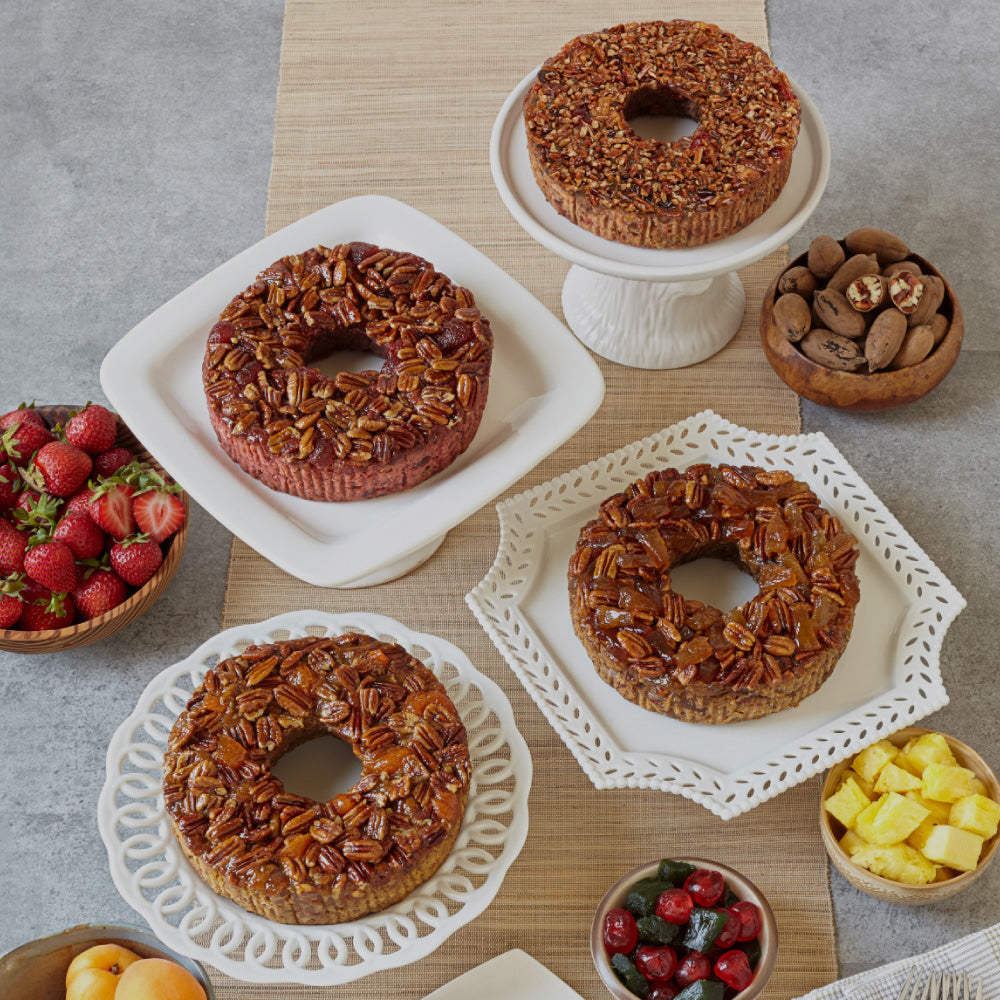

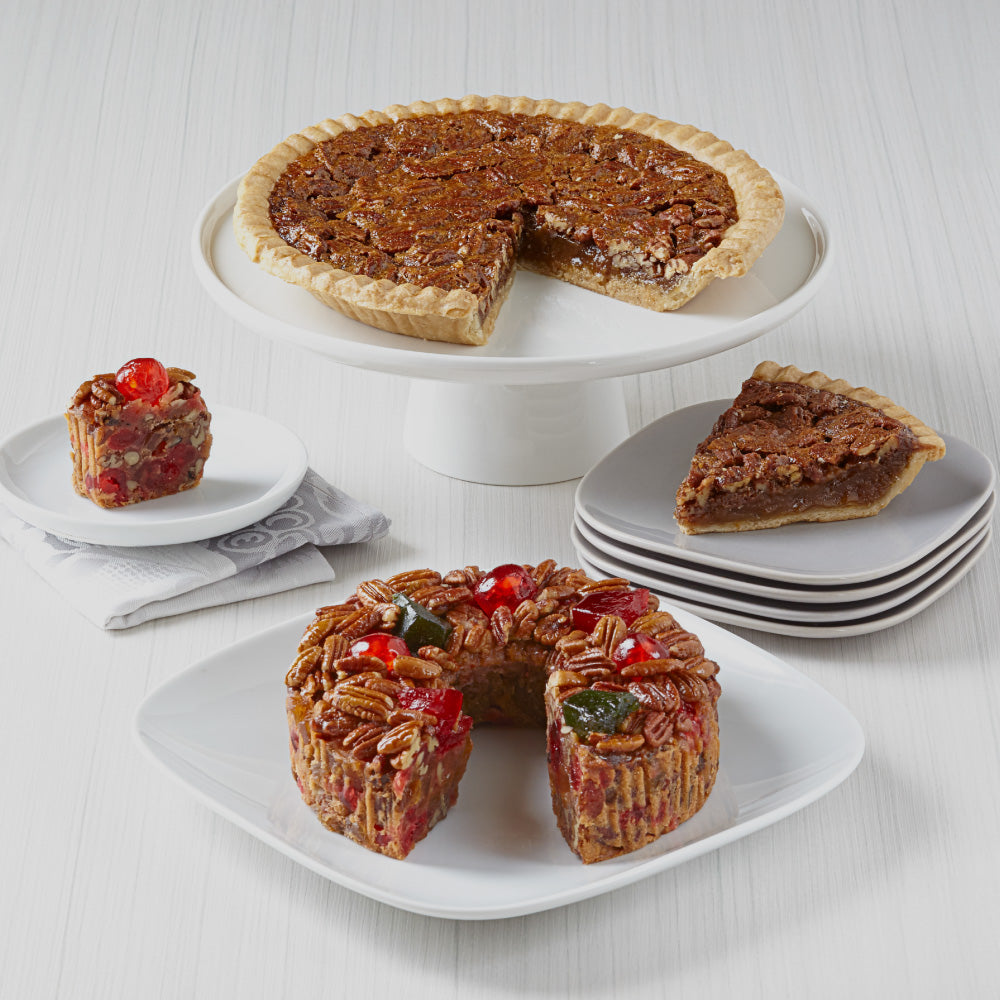

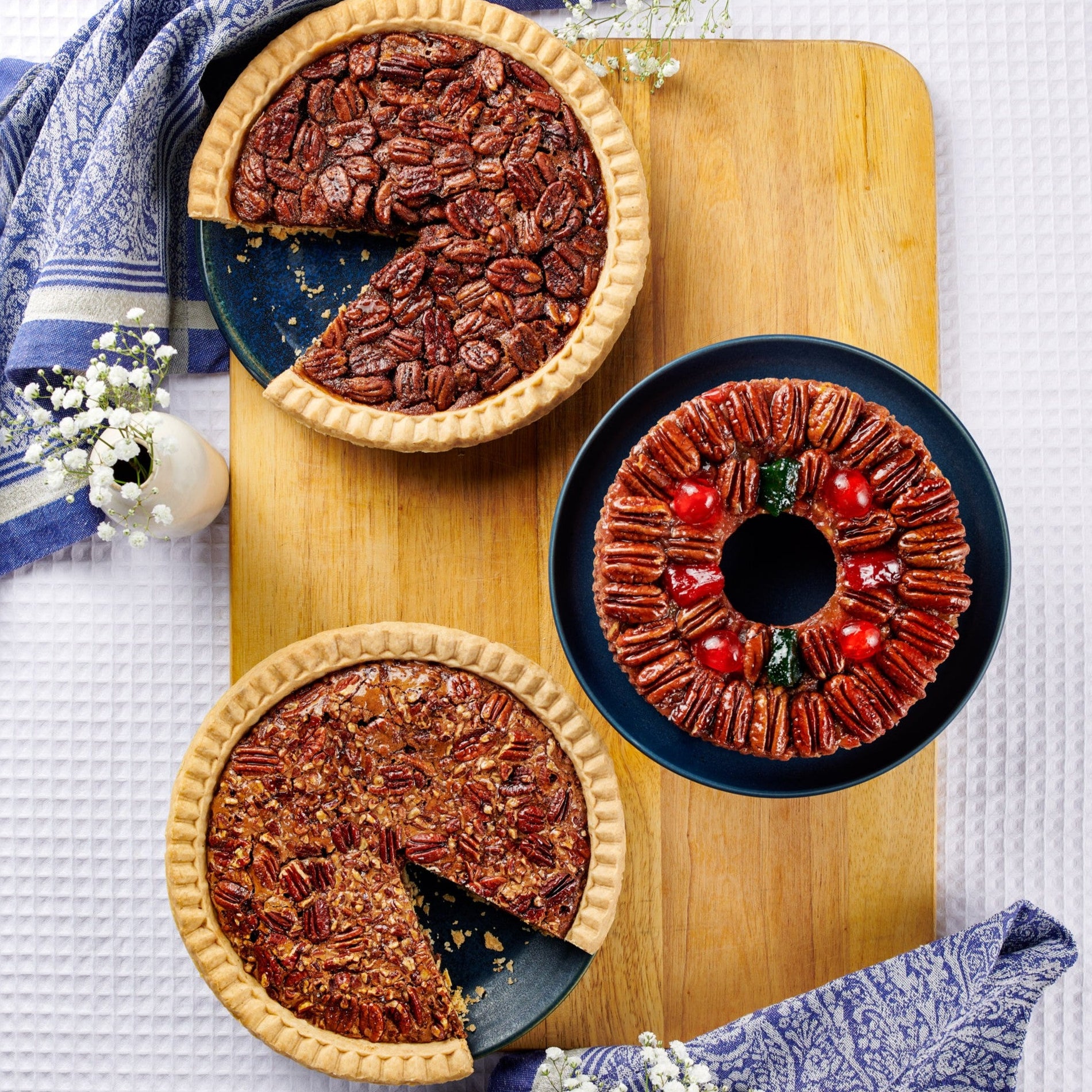
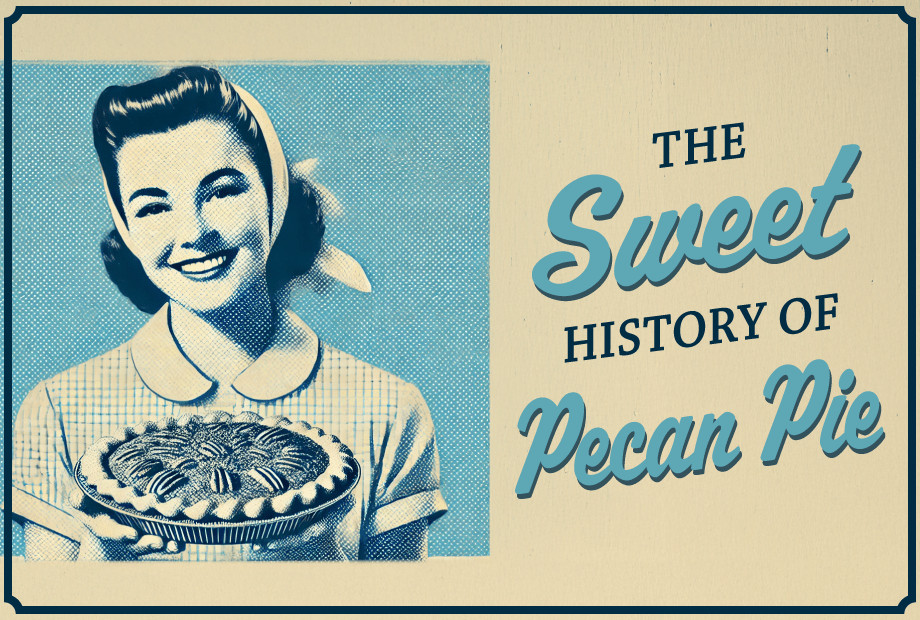
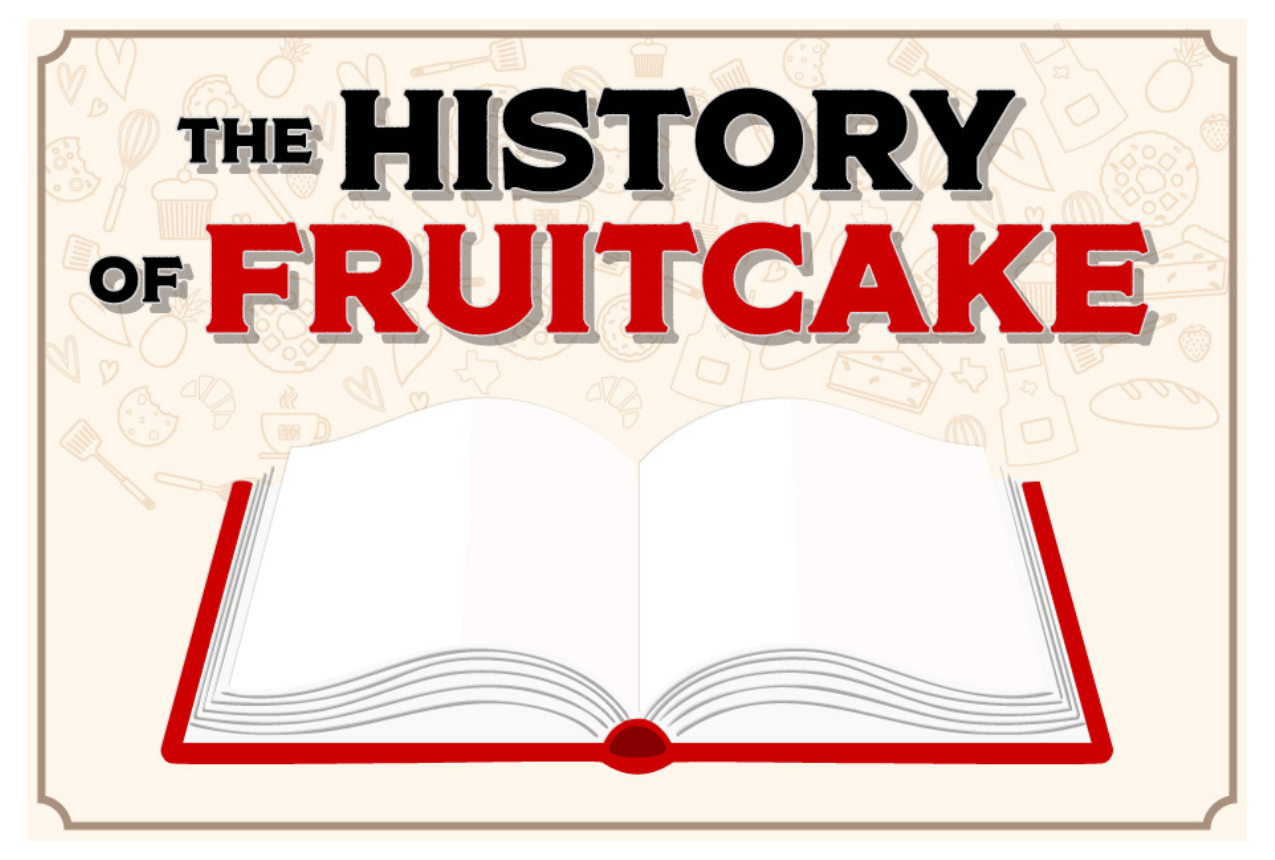
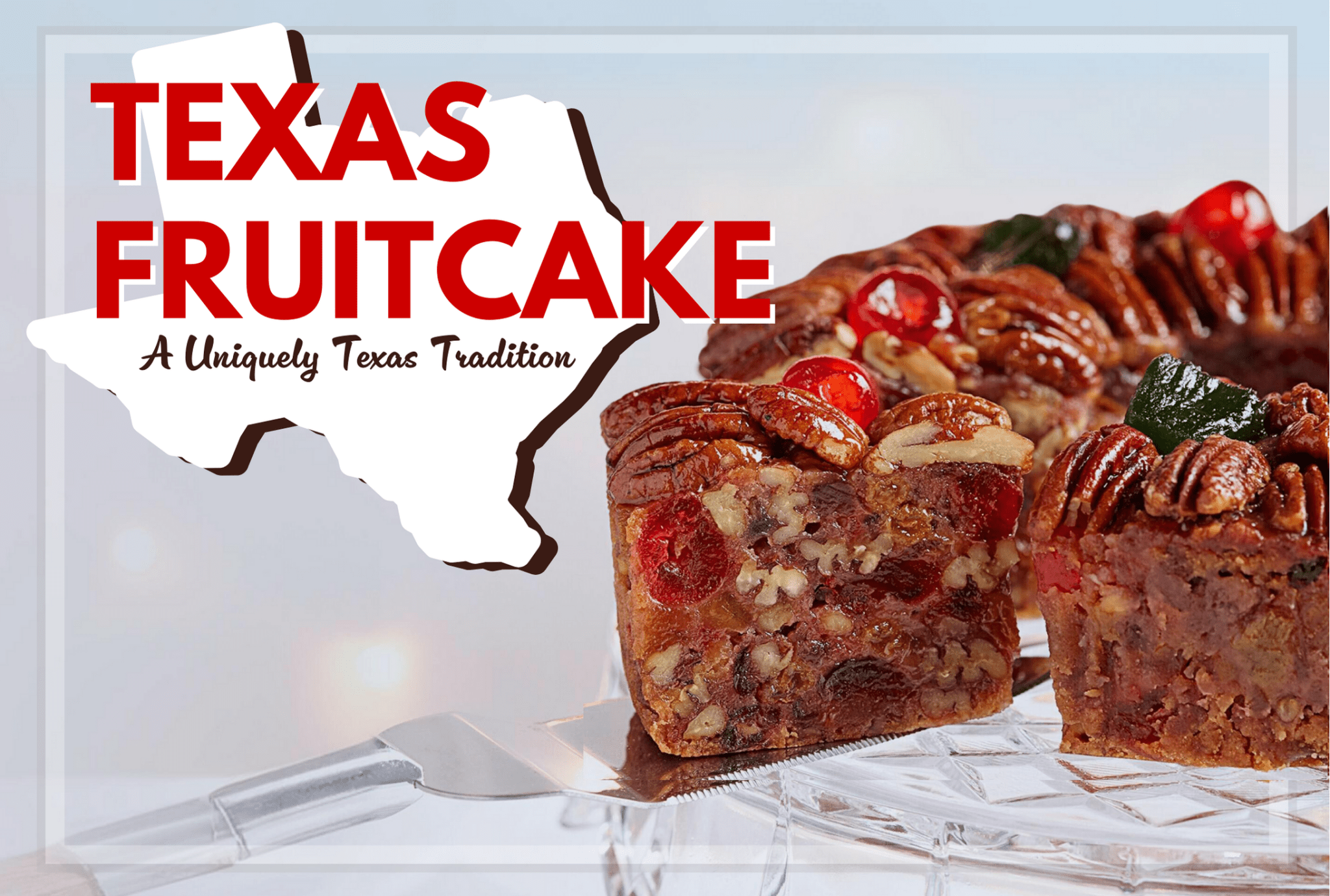
Leave a comment
This site is protected by hCaptcha and the hCaptcha Privacy Policy and Terms of Service apply.